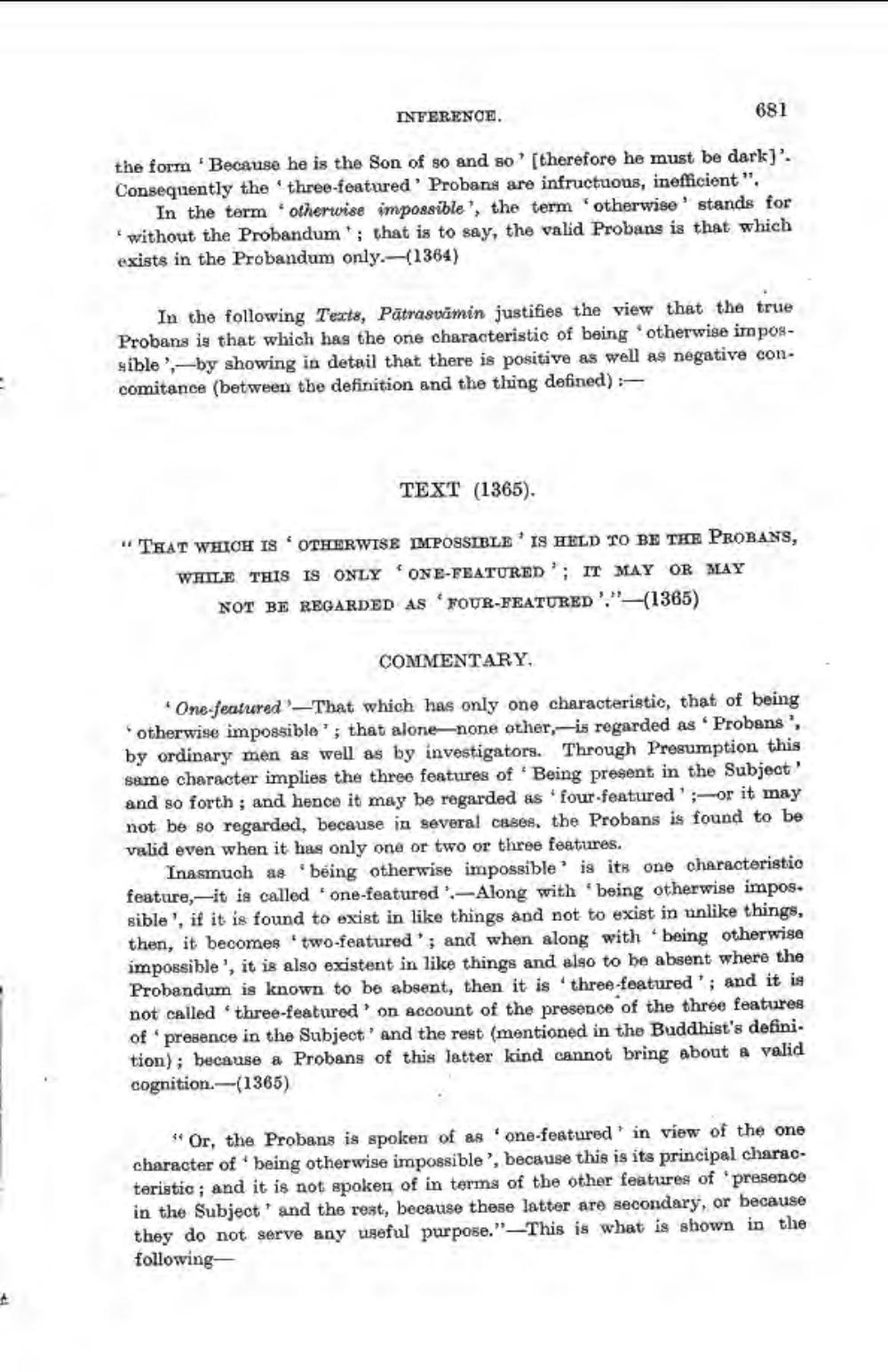________________
소
INFERENCE.
681
"
the form 'Because he is the Son of so and so [therefore he must be dark]'. Consequently the three-featured' Probans are infructuous, inefficient".
In the term otherwise impossible", the term otherwise' stands for without the Probandum; that is to say, the valid Probans is that which exists in the Probandum only.-(1364)
In the following Texts, Patrasvamin justifies the view that the true Probans is that which has the one characteristic of being otherwise impossible', by showing in detail that there is positive as well as negative concomitance (between the definition and the thing defined) :
TEXT (1365).
+
"THAT WHICH IS OTHERWISE IMPOSSIBLE IS HELD TO BE THE PROBANS, WHILE THIS IS ONLY "ONE-FEATURED; IT MAY OR MAY NOT BE REGARDED AS FOUR-FEATURED"." (1365)
4
COMMENTARY.
One-featured-That which has only one characteristic, that of being otherwise impossible'; that alone-none other,-is regarded as Probans", by ordinary men as well as by investigators. Through Presumption this same character implies the three features of Being present in the Subject' and so forth; and hence it may be regarded as 'four-featured';-or it may not be so regarded, because in several cases, the Probans is found to be valid even when it has only one or two or three features.
Inasmuch as being otherwise impossible is its one characteristic feature, it is called one-featured-Along with being otherwise impos. sible', if it is found to exist in like things and not to exist in unlike things, then, it becomes two-featured'; and when along with being otherwise impossible', it is also existent in like things and also to be absent where the Probandum is known to be absent, then it is three-featured'; and it is not called three-featured on account of the presence of the three features of presence in the Subject' and the rest (mentioned in the Buddhist's definition); because a Probans of this latter kind cannot bring about a valid cognition. (1365)
4
"Or, the Probans is spoken of as one-featured in view of the one character of being otherwise impossible', because this is its principal characteristic; and it is not spoken of in terms of the other features of 'presence in the Subject and the rest, because these latter are secondary, or because
they do not serve any useful purpose."-This is what is shown in the following




